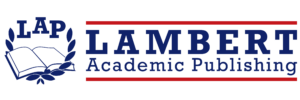
What are book royalties?
When it comes to publishing academic book, royalties are the payment that authors and publishers receive for the sale of each book. These royalties are typically a percentage of the book’s retail price, and they can vary depending on several factors, such as the book’s subject matter, the author’s reputation, and the publishing company’s policies.
What is the industry standard for book royalties?
There isn’t a single industry standard as royalty rates can vary greatly. Many factors influence royalty percentages; however, below we outline some typical ranges.
How much royalties do authors get per book?
The amount of royalties an author earns per book depends on several factors, including:
- Publisher Type: Traditional publishers generally offer higher royalties than self-publishing platforms.
- Book Format: Hardcovers tend to generate higher royalty rates than paperbacks or ebooks.
- Author Experience: Established authors with proven sales records can often negotiate better royalty terms.
Book Publishing Royalty Rates
Here’s a breakdown of some average royalty rates for authors:
- Traditional Publishing Royalty Rates:
- Hardcover: 10-15% of the retail price
- Paperback: 7-10% of the retail price
- Self-Publishing Royalty Rates:
- Ebooks: Often 40-70% of the retail price
Royalty structures can be complex, but if you publish with Lambert Academic Publishing you are entitled to receive 12% royalties for every sold and paid copy based on the revenue for the publisher.
You are entitled to receive royalty payments if these royalties equal or exceed a monthly average of 50 EURO within the settlement period. For a lower average monthly amount, you will receive a book voucher for the value of applicable royalties redeemable at our online book shops.
Everything You Should Know Before Signing a Royalty Agreement

A royalty agreement is crucial as it spells out your financial compensation. Before signing consider:
- Royalty Basis: Clarify if royalties are calculated on the retail price, net price (price after discounts), or a different metric.
- Subsidiary Rights: Define how income from film adaptations, translations, or audio versions is shared.
- Advance: Understand if you’ll receive an advance payment against future royalties.
- Escalating Royalties: Negotiate increased royalties if your book reaches specific sales thresholds.
Is there any way to get out of a royalty agreement?
Breaking a royalty agreement can be complex. Look for termination clauses in the contract. Consulting a lawyer specializing in publishing contracts is strongly advised.
Understanding book royalties is essential for authors. Here are our 4 key takeaways:
- Book royalties are a vital source of income for authors.
- Understanding royalty rates will help authors evaluate publishing offers.
- Read royalty agreements carefully before signing, paying attention to your royalty structure.
- Traditional publishing offers lower royalties for books but more support than self-publishing.
